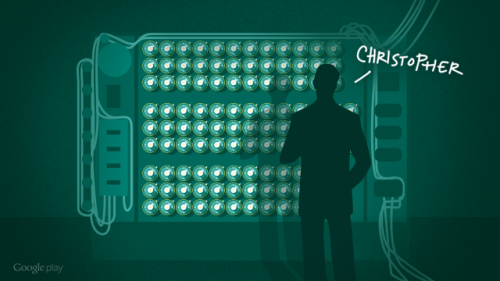
“Are you paying attention?”
I knew of Alan Turing prior to this movie due to a tumblr post floating around, of the legendary poisoned apple with which he allegedly committed suicide. It’s always an apple: the apple that inspired Newton’s Universal Law of Gravitation, the apple farm that inspired the Apple logo, the apple from the tree of knowledge. Lord Byron’s Manfred laments:
But grief should be the instructor of the wise;
Sorrow is Knowledge: they who know the most
Must mourn the deepest o’er the fatal truth,
The Tree of Knowledge is not that of Life.
A friend and I caught this movie after our exams, during which the projector died, followed by an agonizing twenty minute wait for it to be revived. The Imitation Game was a brilliantly cast movie with the ever enigmatic Benedict Cumberbatch, Bomberding Cabbagepatch, Beaverwing Cloverpatch, as Alan Turing, Keira Knightley as Joan Clarke, the bright cryptoanalyst hemmed in by society and countless other stellar British actors whose faces are familiar (was that guy on Downton Abbey?).  This is not a happy story; you who are aware of Turing’s sad demise should know that already. Lives are saved, the war is won, people get married but happiness lasts only for normal people. The film is framed curiously with Turing relating his (off the record) past to a detective while facing criminal charges for his homosexuality. The core of the tale is about Turing’s participation in the war effort. The British government gathers a motley crew of mathematicians and cryptoanalysts to decipher the German ENIGMA code, vital to winning the war and thus the most important battle is fought in a dusty office and a large barn. The closest we get to the actual war is black and white film of explosions and missiles being fired from submarines. Those expecting more action will be disappointed.
This is not a happy story; you who are aware of Turing’s sad demise should know that already. Lives are saved, the war is won, people get married but happiness lasts only for normal people. The film is framed curiously with Turing relating his (off the record) past to a detective while facing criminal charges for his homosexuality. The core of the tale is about Turing’s participation in the war effort. The British government gathers a motley crew of mathematicians and cryptoanalysts to decipher the German ENIGMA code, vital to winning the war and thus the most important battle is fought in a dusty office and a large barn. The closest we get to the actual war is black and white film of explosions and missiles being fired from submarines. Those expecting more action will be disappointed. 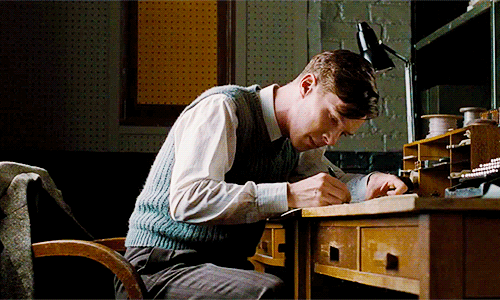 World War Two is the mere background against which Alan Turing’s life plays out. His mother called him an odd duck: a homosexual genius plagued with what we would today call Asperger Syndrome, unable to decipher social cues and conversation, he spends much of his childhood being bullied. His only friend, the first person to break through the impenetrable fog, is Christopher, whom he will eventually fall in love with and name his codebreaking machine after. After Christopher dies, Alan goes on to make a name for himself as an arrogant mathematician obsessed with solving crossword puzzles, finally finding employment with the Government’s secret ENGIMA unit. He chances upon Joan, a prodigy whose skills may even surpass his and marries her to allow her to work on ENIGMA with the team.
World War Two is the mere background against which Alan Turing’s life plays out. His mother called him an odd duck: a homosexual genius plagued with what we would today call Asperger Syndrome, unable to decipher social cues and conversation, he spends much of his childhood being bullied. His only friend, the first person to break through the impenetrable fog, is Christopher, whom he will eventually fall in love with and name his codebreaking machine after. After Christopher dies, Alan goes on to make a name for himself as an arrogant mathematician obsessed with solving crossword puzzles, finally finding employment with the Government’s secret ENGIMA unit. He chances upon Joan, a prodigy whose skills may even surpass his and marries her to allow her to work on ENIGMA with the team.
We’ll have each other’s minds. Sounds like a better marriage than most. Because I care for you. And you care for me. And we understand one another more than anyone else ever has.
But the true love story in this is between Alan and his beloved universal machine. In a world where he’s almost incapable of deciphering human behaviour and emotions, he speaks the language of mathematics to his machine with unparalleled ease. Perhaps obsessed with the idea of bringing his machine to life, he sets out to design an electrical brain for it.
Of course machines can’t think as people do. A machine is different from a person. Hence, they think differently. The interesting question is, just because something, uh… thinks differently from you, does that mean it’s not thinking? Well, we allow for humans to have such divergences from one another. You like strawberries, I hate ice-skating, you cry at sad films, I am allergic to pollen. What is the point of… different tastes, different… preferences, if not, to say that our brains work differently, that we think differently? And if we can say that about one another, then why can’t we say the same thing for brains… built of copper and wire, steel?
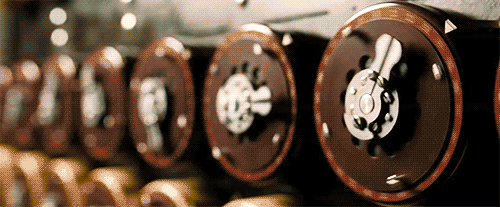 A lifetime of being different and being persecuted leads to his final question for the world, the famous Turing test:
A lifetime of being different and being persecuted leads to his final question for the world, the famous Turing test:
Now, Detective, you get to judge. That’s how the game works. I answered your questions. You know my story. That’s the point of the game. We are all pretending to be something. Imitating something. Someone. And we are no more, and no less, than what we can convince other people that we are. So tell me: What am I? Am I a person? Am I a machine? Am I a war hero? Am I a criminal?
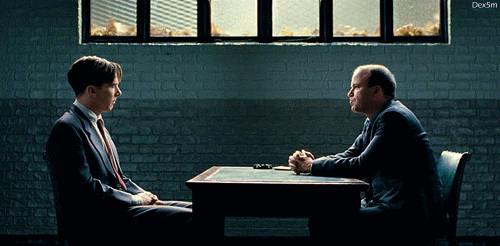 From there, the film is devastating . Under the weight of public persecution, chemical castration and possibly cyanide poisoning, Alan cracks. He gets a visit from his old friend, Joan, perhaps the one person whose ever comes close to understanding him. Alan sits in his armchair in his old robe, in shambles, decrying his fate and pleading for the world not to take his beloved machine away from him. (there was a lot of sniffling around us, props to Cumberbatch for that).
From there, the film is devastating . Under the weight of public persecution, chemical castration and possibly cyanide poisoning, Alan cracks. He gets a visit from his old friend, Joan, perhaps the one person whose ever comes close to understanding him. Alan sits in his armchair in his old robe, in shambles, decrying his fate and pleading for the world not to take his beloved machine away from him. (there was a lot of sniffling around us, props to Cumberbatch for that). 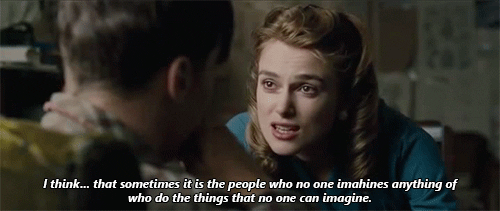
No one normal could have done that. Do you know, this morning… I was on a train that went through a city that wouldn’t exist if it wasn’t for you. I bought a ticket from a man who would likely be dead if it wasn’t for you. I read up on my work… a whole field of scientific inquiry that only exists because of you. Now, if you wish you could have been normal… I can promise you I do not. The world is an infinitely better place precisely because you weren’t.
The film’s handling of homosexuality was done with considerable sensitivity. Mr Turing received a pardon for his (a very late one, petitions for which had failed in 2012). It is a welcome champion of gay rights. I can praise The Imitation Game for many things: great acting, gay rights, feminism, embracing the weird and delving into thorny issues such as the complexities of war and power. At its heart, it is a beacon for all the strange ones out there, telling them to accept themselves and to screw normal, a very familiar refrain we have heard over the years. The film is far from perfect; there are a few loose strands such as Alan being blackmailed into communicating with the Russian government, the clumsy framing methods, one of the ENIGMA team conveniently having a brother on board the ship they have to sacrifice (that deserved so many eyerolls), the admittedly at-times clumsy dialogue. It is, however, a timely, luminous adaption of Turing’s story which will resonate with many. 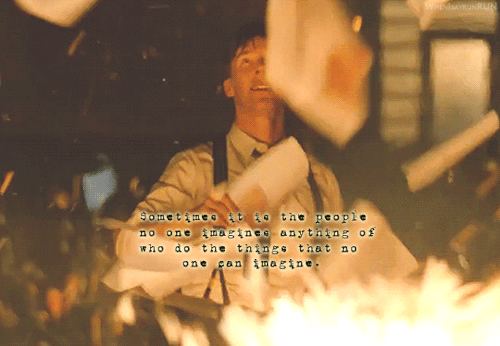 The film is likely to leave a legacy of its own in furthering the civil movement for gay rights, and I’ll end with its screenwriter Graham Moore’s message of hope at the Academy Awards: “Stay weird, stay different.” Hopefully we will see more film adaptations for women scientists. Black women scientists! Pauli Murray! Ida B. Wells!
The film is likely to leave a legacy of its own in furthering the civil movement for gay rights, and I’ll end with its screenwriter Graham Moore’s message of hope at the Academy Awards: “Stay weird, stay different.” Hopefully we will see more film adaptations for women scientists. Black women scientists! Pauli Murray! Ida B. Wells!